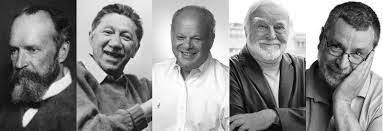What is Holistic Counselling?
Mind Body Education
Award-Winning Training For Holistic Therapists
What is Holistic Counselling?
About Holistic Counselling
Holistic counselling distinguishes itself from conventional counselling by adopting a more comprehensive and integrative approach to mental well-being.
While traditional counselling often focuses on identifying and addressing specific problems, holistic counselling takes a broader perspective. It recognizes that mental health is intricately connected to physical, emotional, and spiritual aspects of a person's life.
Holistic counsellors emphasize the importance of considering the whole person and their unique circumstances. This approach extends beyond mere symptom management and instead seeks to promote overall wellness and personal growth.
One key element of holistic counselling is the incorporation of positive psychology, which underscores the importance of cultivating strengths, resilience, and well-being rather than solely concentrating on what is wrong with an individual.
Positive psychology encourages the exploration of one's potential, the fostering of positive emotions, and the development of a sense of purpose and fulfilment.
Holistic counsellors aim to empower their clients to not only overcome challenges but also to thrive by fostering a positive mindset and emphasizing personal growth, ultimately helping individuals achieve a state of well-being that encompasses emotional, physical, and spiritual health.
Holistic counselling places a strong emphasis on empowering individuals with knowledge, understanding, skills, and tools to take charge of their own well-being.
Unlike many traditional forms of counselling, which may adopt a more passive approach, holistic counselling actively involves clients in their healing process. It equips them with a comprehensive set of resources and strategies that extend far beyond the counselling sessions.
Holistic counsellors work collaboratively with their clients, guiding them to explore the interconnected aspects of their lives, such as nutrition, exercise, mindfulness practices, and spiritual beliefs. By gaining a deeper understanding of these factors, individuals are better equipped to make informed choices that support their mental and emotional health.
Holistic counselling encourages self-awareness and self-empowerment, fostering a sense of autonomy and control over one's mental well-being. Through the acquisition of valuable skills and tools, individuals can proactively manage their stress, anxiety, and other challenges, reducing the need for ongoing therapeutic intervention. Holistic counselling becomes a catalyst for personal growth and self-improvement, leading to a more balanced and fulfilled life. It is a dynamic approach that goes beyond treating symptoms, aiming to provide clients with the means to thrive and flourish in all aspects of their existence.


Holistic counselling is grounded in positive psychology.
Positive psychology emerged in the late twentieth century, presenting itself as a branch of psychology dedicated to the scientific exploration of well-being and the pursuit of the 'good life.' This shift towards investigating optimal human functioning was a response to the prevailing focus on what was 'wrong' with a person and aiming to establish a scientific understanding of human flourishing.
The founding fathers of positive psychology played pivotal roles in shaping this field.
- William James: James, a philosopher, physician, and psychologist, holds the distinction of being the first educator in the United States to offer a psychology course. Fascinated with why some individuals thrived in the face of adversity, he emphasized the importance of understanding subjective experience in exploring optimal human functioning. Often regarded as America's first positive psychologist, James integrated pragmatic and functionalist perspectives to bridge the gap between mind and body.
- Abraham Maslow: Maslow, a key figure in humanistic psychology, coined the term "positive psychology" in his book "Motivation and Personality." Displeased with psychology's fixation on disorder, Maslow argued for a more accurate understanding of human potential. He criticized earlier psychological approaches for overlooking human virtues and aspirations, laying the foundation for positive psychology.
- Martin Seligman: Seligman was elected President of the American Psychological Association in 1996. He focused on positive psychology and proposed that mental health extended beyond the absence of illness, ushering in an era that explored the sources of human happiness and fulfilment. Seligman's research on learned helplessness and pessimism laid the groundwork for his collaboration with Christopher Peterson, resulting in a positive alternative to psychopathology in their book "Character Strengths and Virtues."
- Mihaly Csikszentmihalyi: Csikszentmihalyi, influenced by his experiences during World War II, developed an interest in psychology. His fascination with the flow state, the immersive experience of creativity, became a focal point of his work. Csikszentmihalyi's studies on flow have applications in understanding creativity, productivity, and happiness at both individual and organizational levels.
- Christopher Peterson: Peterson, a Professor of psychology at the University of Michigan, co-authored "Character Strengths and Virtues" with Martin Seligman. His work focused on strengths, virtues, optimism, hope, character, and well-being, making him one of the founding fathers of positive psychology.
